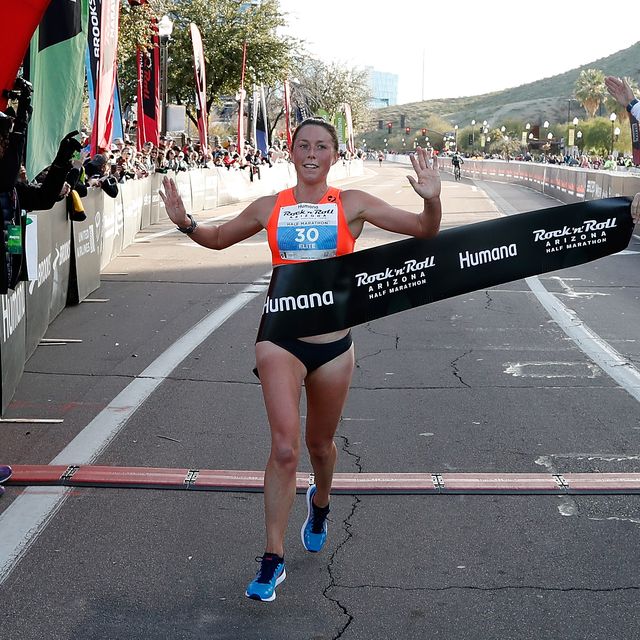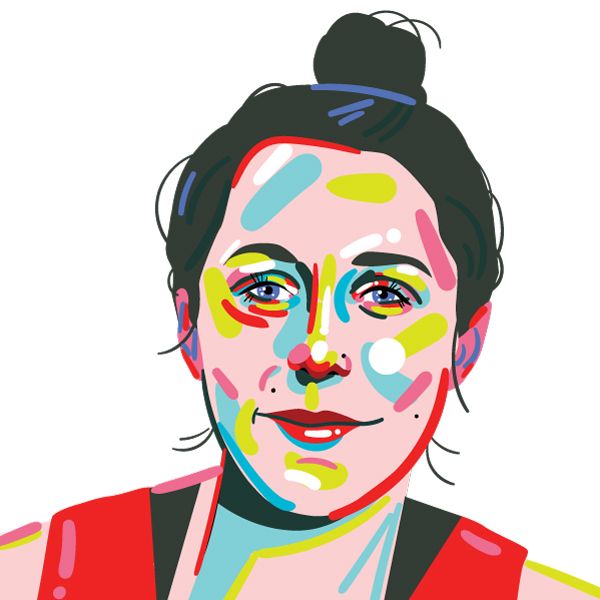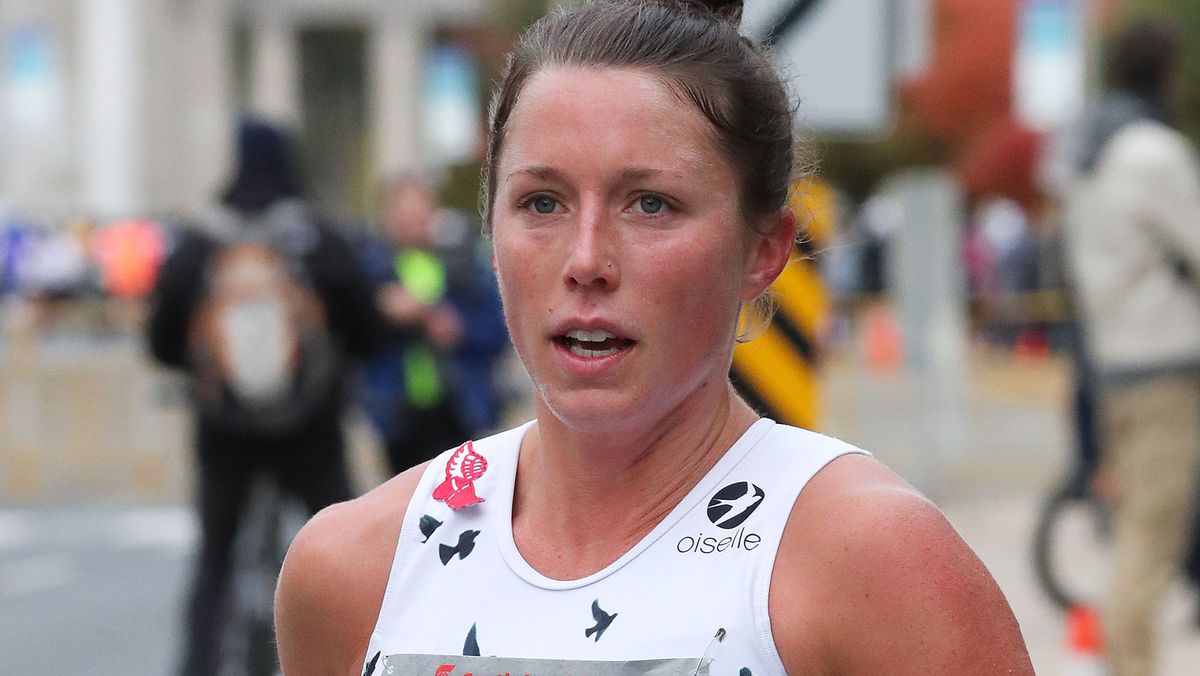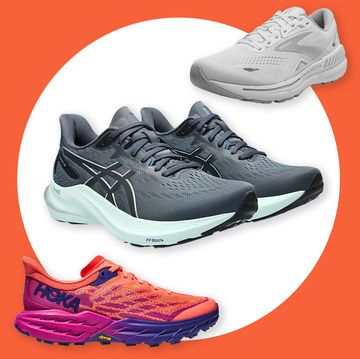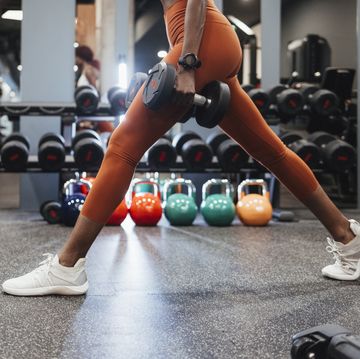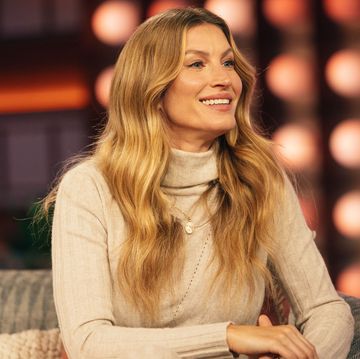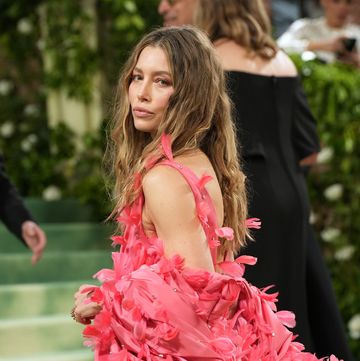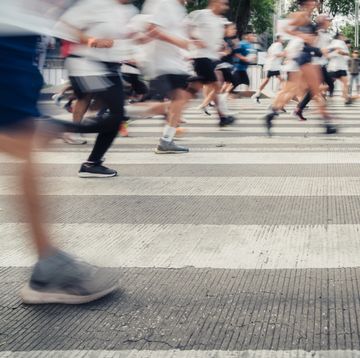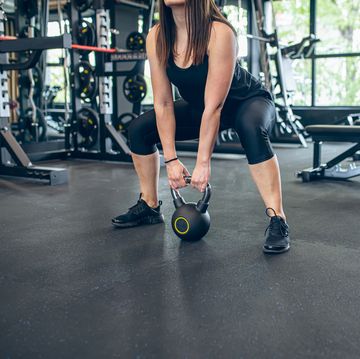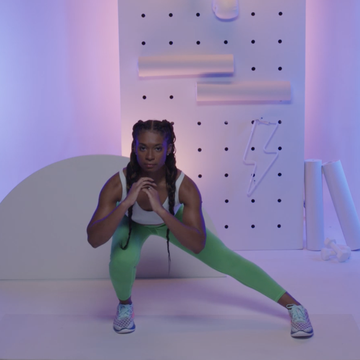This profile is part of the Women's Health "Women In Sports" series, which highlights fierce female athletes who are advocating for gender equality in sports. The series is part of our ramp-up to the Aurora Games, the first-ever all-female sport competition, which will take place in New York August 20-25. Get your tickets today.
Earlier this year, Allie Kieffer posted a picture of herself flexing on Instagram. The caption read: “Strong is empowering. It’s knowing you belong in the free-weights
section of the gym, holding your own amongst grunting men. Strong is seeing the number on the scale, but knowing it isn’t tied to your self-worth. It’s the feeling that you can accomplish all of your goals. Strong is standing up for your values regardless of what others say. It’s the confidence to be unapologetically you. Strong looks like you!”
Surely Kieffer looked strong when she stood at the start line of the 2017 New York City Marathon. Not that anyone really noticed. She was virtually unknown. She didn’t have a sponsor or even a coach. In fact, she had quit running five years earlier, after injuries and a drained bank account seemed to have doomed her postcollegiate professional career.
“I moved to New York in 2013 to be a nanny and didn’t have any friends, and people were like, ‘What’s your hobby? That’s how you meet people,’” Kieffer, now 31, says. “So I started running again, then it got a little more serious with each year, and I started coaching myself to run the New York City Marathon.”
Kieffer finished in 2:29:39—fifth place among women, and the second American woman behind Shalane Flanagan. The world took notice—of both her dominance on the course and her appearance. Running message boards lit up with talk of how Kieffer must be doping, how there’s no way a woman with her build could run that pace.
Watch Allie Kieffer recount her surprising NYC Marathon finish:
“It wasn’t the first time I’d been told I’m too heavy to be a good runner,” says Kieffer. “I’m just a firm believer that the way I look does not affect my ability to do my job.” In fact, Kieffer attributes her earlier injuries—which forced her to withdraw from the Olympic trials—to her low body weight, which made her look, but not perform, like an elite marathoner.
“Running has such a negative diet culture. I wasn’t doing any strength work at all and wasn’t feeding myself enough food,” she says. “Leading up to the New York City Marathon, on the other hand, I was lifting in a CrossFit gym, I was stronger, and I was running really well. That was the turning point for me in realizing I don’t have a racing weight. I don’t have to be a certain leanness to be a great runner.”
In response to the negative chatter about her body, Kieffer began blasting back and posting video responses on Instagram, saying, “The words that I’m too old and I’m too big and I’m doping? Those hurt. I’m not too big. And I’m not doping. I’m here to stay.” Next up on Kieffer’s list? Qualifying for the 2020 Olympics while continuing to be vocal about body positivity.
“The more we build on this conversation, the more we help women get to a healthy place of self-love,” she says. For Kieffer, opening up on social media was therapeutic. “I thought, I’m going to be vulnerable and let this out because it will help me,” she says. “Then people started connecting with me and writing messages, and I realized how helpful it was for them as well. It’s created a community where we all support each other.” Speak it, sister.
This article appears in the July/August 2019 issue of Women’s Health. For more intel on how to live a happier, healthier life, pick up a copy on newsstands now.
